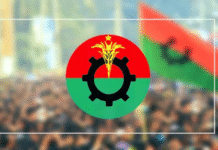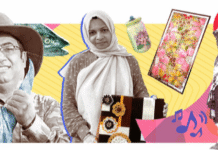F R Chowdhury
Preferential quota system creates discrimination. Discrimination creates division in the society. It does not allow equal treatment to all. It is against human rights. It cannot exist in a democratic society. Equality, justice, freedom of expression and human rights are the key words associated with modern democracy. Each one of these components is closely linked with other components. Lack of any of these components makes democracy unworkable.
Knowingly or not, our constitution itself is contradictory. Reserved seats for women members in the Parliament are discriminatory. Many will argue that it is positive discrimination to achieve fair share of women’s representation. But positive discrimination is also discrimination and we have already identified it as an element contrary to democratic principles.
The constitutional provision for an MP to lose his/ her seat if s/he votes against party line is also contradictory to freedom of expression and human rights. This does not allow the MP to apply his/ her discretion for the good of the state. I do support two other provisions of losing parliamentary seat – MP should lose his/ her seat if s/he tries to change party. This will prevent them of being corrupt because otherwise they could change party to become a minister. On the same ground the MP should lose his/ her seat if s/he fails to vote for the party in a no-confidence vote. However, on all other matters debated on the floor of the parliament, a member should express his/ her view freely in the greater interest of the state (and not of the party). That is the only way we can achieve correct decisions.
We have to understand the origin of the quota system. Hindu religion has its cast system. In the Middle-East, the ruling sultans, kings, and sheikhs have their ruling families/ class regarded superior to others. I have worked in the Middle-East and I know how all the key jobs are reserved for members of the royal family. In the Indian sub-continent the Muslim rulers had appointed dewans and zagirdars to collect taxes and this system continued in hereditary manner. They were considered elite class of people who would use their acquaintance with royal families. Then came the British rule in India. Only a few thousand Britons ruled the whole of India. For this they created a net-work of loyal and faithful subjects. They were selected from amongst those who educated themselves in English and considered their way of life superior to others. In some cases the influential persons in the society were given such titles as Khan Bahadur and Roy Bahadur etc. Young Indians looking for job had to bring recommendation from a KB or RB or had to prove that their parents or grand parents provided loyal and faithful service to British Raj. Eventually the British Government in India introduced a system of reserved quota for dependants of their loyal servants. It was clearly visible in the armed forces, police and railway. This is in a nutshell the story of quota system.
In an independent sovereign country and that also what we call a peoples’ republic, these things cannot exist. The circumstances are different. We do not require Chatra League cadres loyal to BAL government to run the administration. We require the best intellectual persons with ultimate loyalty to the state to run the administration. I say this because in a democratic country, governments come and go but civil servants stay on to provide the continuity. The civil servants whose services are automatically placed at the disposal of the Government, whichever government in power, are expected to provide loyal and sincere service to the Government, assuming the government doing its best for the country and its people. I hope it needs no further explanation that any quota system is detrimental to the interest of the country.
In the UK, when applying for a job in the civil service, we are often required to fill in a form relating to ethnicity. This is not to create or maintain a quota but to see what could be done to bring in a fair balance. On the basis of these statistics, Government decides how a community can be helped with better educational facilities etc. but never doing anything that creates any discrimination or deprivation to more deserving candidates. In Bangladesh this philosophy could apply to hill districts where Government could have more educational facilities so that the young people from hill districts can develop themselves as more deserving candidates. However, creating any quota system would be fundamentally wrong because this could deprive more deserving candidates.
I understand the quota system works everywhere in Bangladesh. For admission in the cadet colleges, some percentages of seats are reserved for dependants of armed forces personnel. For admission in the medical colleges some seats are reserved for dependants of doctors. I still remember how the former prime minister declared in police day celebration that a quota would be kept reserved for their dependants, not realising that being a democratically elected prime minister she was talking against the principle of democracy. For recruitment in the railways we can see how the advertisement openly announces the quota for dependants of railway employees. All these amounts to say that if you have no link with ‘who is who’ then you have no chance. As if we are still under British Raj.
We shall now talk about the freedom fighters and their dependants. Firstly I am sorry to say that no proper list of freedom fighters has been compiled as yet. I say so because according to present Government, Ziaur Rahman and Qader Siddique were not freedom fighters. Every nation in the world has its own system of remembering their national heroes. They normally come with a title of honour such as Bir Bikram (BB) or Bir Uttam (BU) or Bir Sreshta (BS) with an accompanying medal and a cash sum. Those serving the armed forces and still in service may also be given accelerated promotion, seniority or next higher salary. Those who make the ultimate sacrifice (shaheeds) are also given pension for the benefits of their dependants. The State normally takes the responsibility of educating their dependants. However, reserving a quota of jobs for their employment at the cost of more deserving candidates cannot be an option. In Bangladesh 42 years after liberation of the country we cannot find any justification of any preferential treatment for the descendants of the freedom fighters. It is time to close this chapter.
There are certainly better ways for honouring and remembering our great freedom fighters. The armed forces should trace out all those heroes who belonged to them and name various units or establishments after those great heroes. The Police and BGB could also do the same with their martyred heroes. The colleges and universities could do the same with their heroes. The local government right up to village level should find our great civilian heroes who sacrificed their lives for the country we live in, and name public facilities (roads, bridges, schools, hospitals, public libraries etc.) after those heroes. This will keep alive the spirit of our great heroes and inspire generations to come.
It is time to stop naming our state facilities after the corrupt politicians or other controversial characters. Name and remember the heroes. Long live Bangladesh free of all discrimination. Let the principle of equal opportunity and rights, justice for all, freedom of expression, human rights and democracy flourish. That is the best way to honour our martyred shaheed freedom fighters.
<fazlu.chowdhury@btinternet.com>









